Record number of millennials report no affiliation with religion as faith and spirituality evolve
This image of Jesus and Mary that stands on Loyola’s campus is a copy of the original image St. Ignatius and his companions made their original vows to. According to certain polls, more Americans are not identifying as religious. Photo credit: Cristian Orellana
April 28, 2019
Various reports claim religion is losing the influence it once had among millenials and adults.
In the annually published American Family Survey conducted by Brigham Young University in 2018, 44% of millennials aged 18 to 29 years old and 43% of adults aged 30 to 44 years old identified as atheist, agnostic or nothing when asked about their religious affiliation and were categorized as “Nones.”
A separate Gallup report stated 76% of Americans think religion is losing influence on life in the United States as younger generations lean toward a more spiritual form of religion.
The Rev. Ted Dziak, S.J., said he has seen society evolve over the 30 years he has been in higher education.
“We are living in a different world,” Dziak said. “With communications and social media we have become much more secularized. In days of old, the family unit was a little closer, communication was a bit more challenging. We live in a global society. As the world changes, we change with it.”
He said the rise in “Nones” reported is a result of faith evolving alongside society, and he said religion is changing the way every major institution has been. Dziak also said this new trend is a result of younger generations redefining what it means to be religious, but the core of what faith is still resembles what it has looked like in the past.
He said St. Ignatius of Loyola can be thought of as essential when trying to understand faith. Dziak quoted Ignatius and said “We do not have the answers, but we need to ask the questions.”
Dziak said he does not believe adults and millennials have stopped contemplating faith.
“I think these younger generations are still asking these questions, ‘Why am I here?’ and ‘What is important?’ and ‘What kind of person do I want to be?’” Dziak said. “These are the questions of faith, the deeper questions. The difference is, younger generations have different answers.”
Dziak said he is not concerned with how many people identify with religions, but with how many people are still asking the questions.
And some millennials are.
Ben Gothard is a fifth-generation member of Congregation Beth Israel, a modern-orthodox synagogue and the oldest congregation of Judaism in New Orleans. His family helped found the original congregation in the early 1900s, and they have been members ever since—even after Katrina demolished the original temple the congregation practiced in.
In fact, Gothard’s family, his grandmother Jackie Gothard especially, is widely responsible for the congregation’s rebirth after the hurricane. The religion is in Gothard’s blood, and he said it has shaped his entire life and challenged him to work hard to get what he wants.
“My bar mitzvah taught me that anything is possible,” Gothard said.
A bar mitzvah is when a boy becomes a man in the eyes of his congregation in Judaism. In Gothard’s case, he studied the entire Torah and learned to read Hebrew in the months leading up to it.
But in recent years, he said he has had some doubts about the faith. Gothard said, as he has grown up, he has found it hard separating the myth from the historical facts.
“As I learn more about the world and expand my horizons, it becomes harder and harder to take everything literally in the Torah,” Gothard said.
In spite of his doubts, he has learned to take the morals, the values and the lessons his temple teaches and apply them to his everyday life. Gothard said he admires the emphasis on family that modern-orthodox Judaism emphasizes, and wants to raise his children with the same emphasis.
“There are very few families outside the faith that are as close mine,” Gothard said. “The time I spend with my family is a gift to me.”
Gothard said he considers himself more spiritual than anything. He practices meditation daily.
“I see that spirituality as a path to a deeper connection with myself,” Gothard said. “I am more spiritual than I have ever been.”
Earl Johnson, on the other hand, is a recent convert to the Roman Catholic Church. In 2013, he converted from Baptism after learning more about the faith at Jesuit High School.
“When I started high school, I had to start critically thinking about the faith and how it would affect my life in all areas,” Johnson said. “I am very grateful to my first Jesuit in training teacher, now Fr. O’Halloran, teaching me why the Catholic faith is so special.”
Johnson said, as much as he would like his relationship with faith to be smooth sailing, he described his faith as an up-and-down experience.
“Well, my faith goes through waves, which I think a lot of young adults deal with, especially young men who are trying to find their path,” Johnson said. “I have times that I am at the tip of the mountain and going strong and doing everything right, but it takes literally one self-inflicted damage or unforeseen events to arise to take me off course.”
In spite of the rough times, Johnson said he always knows he can lean on his faith when times become more difficult.
“The Catholic Church feels like a second home or a second family to me where I can express my faith with, at least in my mind, no judgement from others.”
Both Johnson and Gothard agreed on one aspect of belief: that what you believe is what you believe, and that is your right.
“I know of and am friends with people who are of a different faith, not practicing faith, denies the faith and just do not follow a particular faith,” Johnson said. “I am not here to judge anyone, and whatever makes him or her happy makes me happy.”


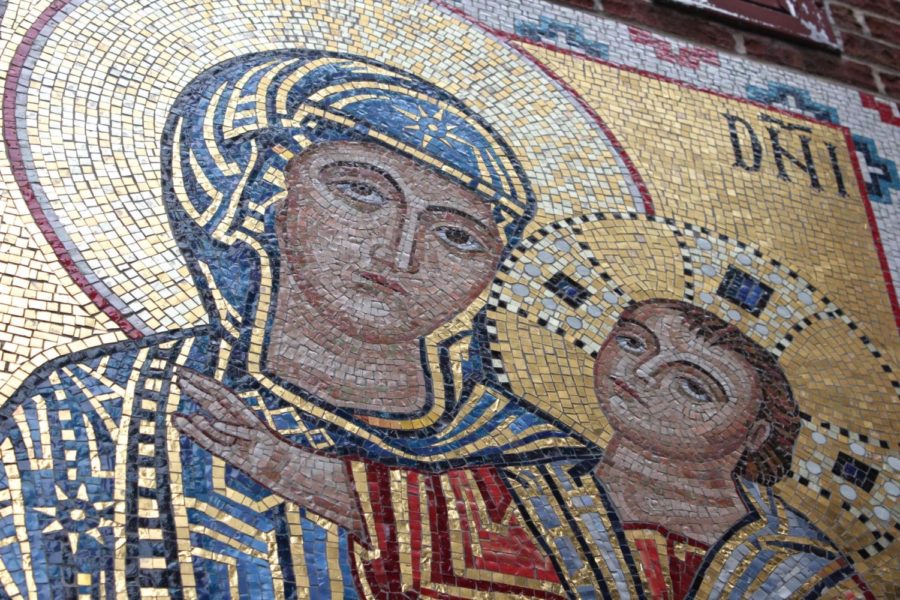
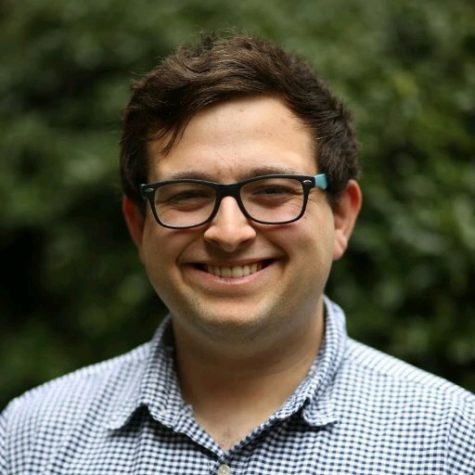






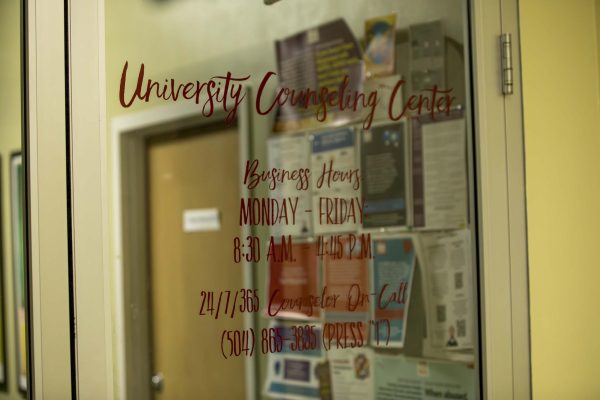
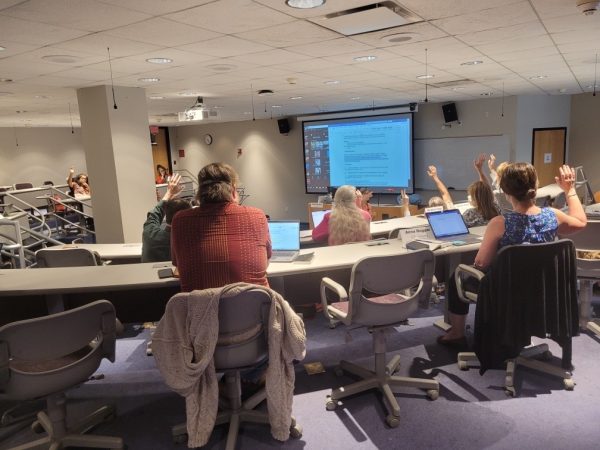
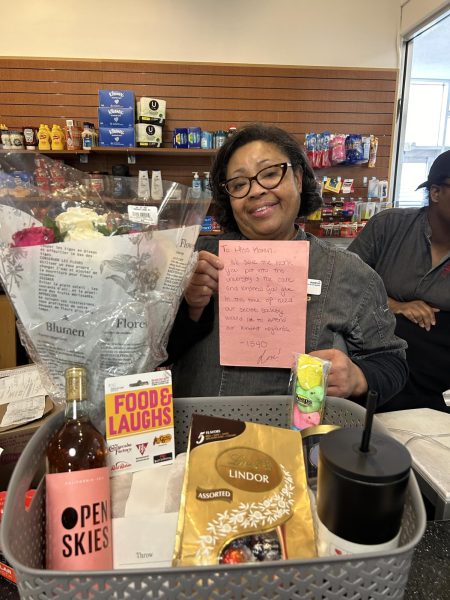
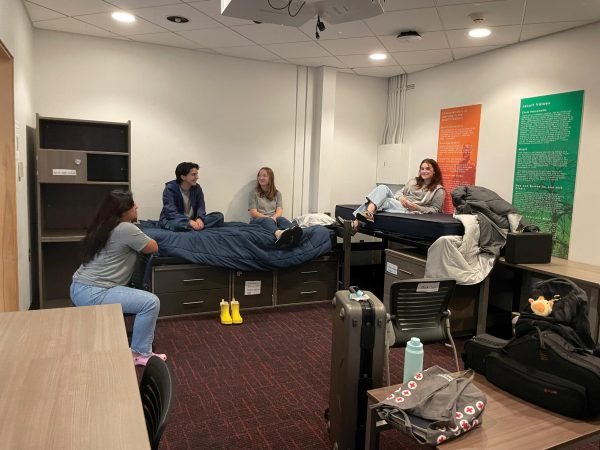
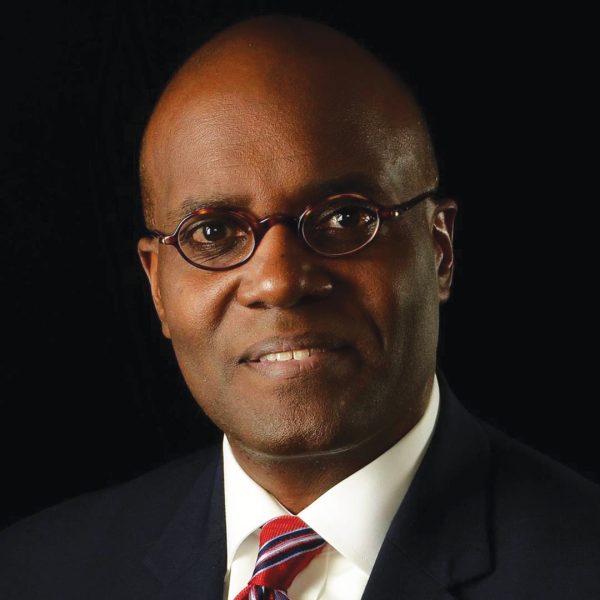

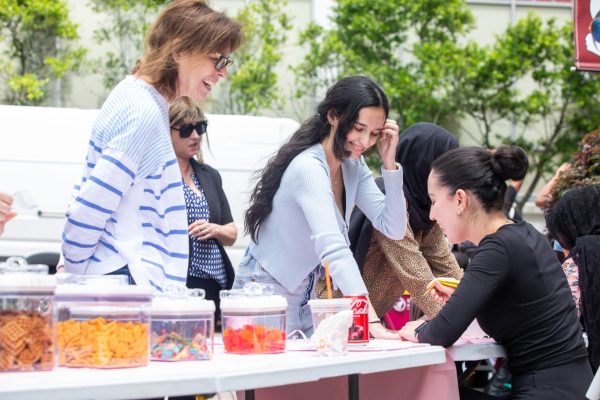
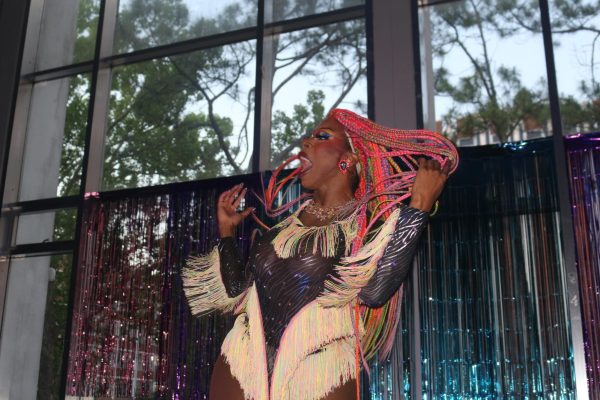
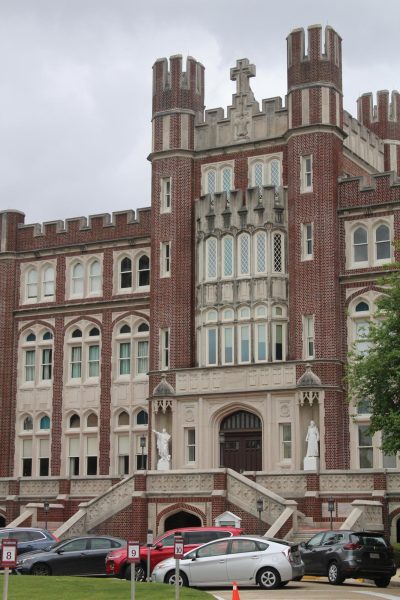
John Kuykendall • Apr 28, 2019 at 11:10 pm
Riley salutations to the Divinity within you and a good article. To transform our mind beyond our thoughts , beyond the same old way of thinking in linear fashion that bubbles up from our sub consciousness, unconsciousness and conscious mind, we have spirit. Our mind creates our reality from our past, but the spirit manifests truth spontaneously. Therefore; every time we go beyond our mind we are introduced to higher dimensions of existence in our conscious awareness. We stop looking for the answers, the light and happiness because we become it. There is no path to happiness as happiness is the path; just being collects the wisdom, not thinking. We do this by being mindful and being present so we can enjoy everything we choose to do. We are on a spiritual path that does not end so we will not arrive, but in the present we are in Eternity, just need to be aware of it.
https://www.amazon.com/John-J-Kuykendall/e/B018AK0WKY/ref=ntt_dp_epwbk_0